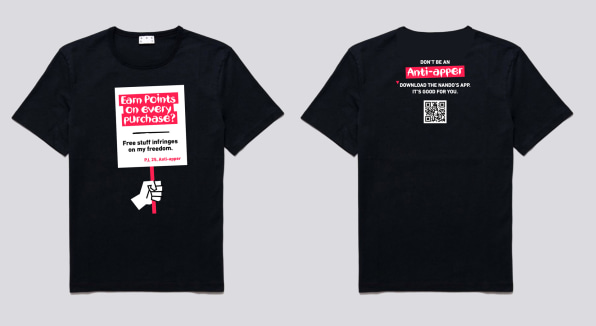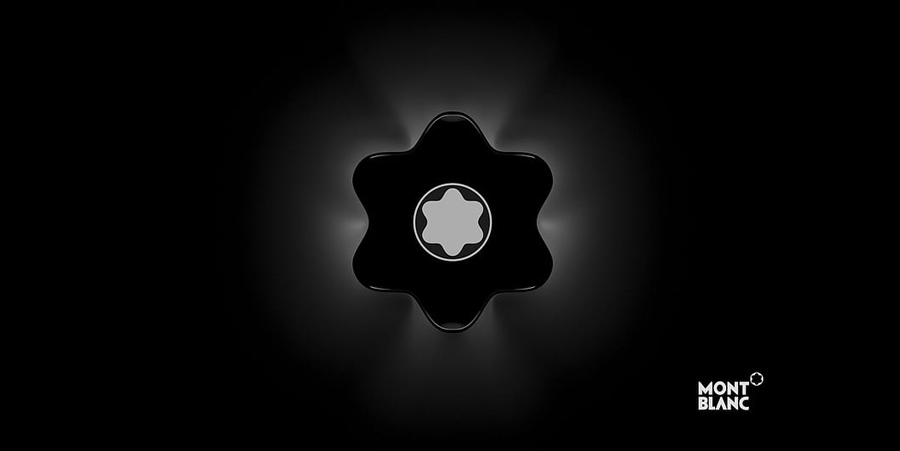In 24 countries on 5 continents, fast-casual restaurant chain Nando’s is known for its flame-grilled chicken, coated in Portuguese peri-peri, a piquant sauce from the bird’s eye chili pepper. But peri-peri partisans might find Nando’s latest offering even spicier than its “Extra Hot” marinade: an ad campaign that derides people who refuse to get the COVID-19 vaccine.
In 24 countries on 5 continents, fast-casual restaurant chain Nando’s is known for its flame-grilled chicken, coated in Portuguese peri-peri, a piquant sauce from the bird’s eye chili pepper. But peri-peri partisans might find Nando’s latest offering even spicier than its “Extra Hot” marinade: an ad campaign that derides people who refuse to get the COVID-19 vaccine.
The campaign, which launched this week, is designed to encourage downloads of a newly updated order-ahead app for North American customers. But the ads employ an unusual, parallel-universe-type strategy: Actors play the roles of people refusing to download the app due to unknown side effects and perceived infringements on their freedom, mockingly mimicking attitudes taken by COVID anti-vaxxers. Nando’s says the campaign is part of a history of taking political stands, which has often purposely crossed into controversy. But it also says part of the objective is to encourage more people to get vaccinated.
The video spots, which will be shown on digital channels and social media, lean into various viral misinformation and conspiracy theories. In one spot, a woman chants: “My phone, my choice,” echoing the pro-choice slogan “my body, my choice”; she later says, “I sure as hell don’t want my phone implanted with 5G,” referring to the conspiracy theory that COVID vaccines contain magnetic 5G tracking (they do not)—and adding that “only sheeple eat free stuff from an app.”
In another video, a young couple discusses side effects, worrying that apps could make the man impotent. They reference “an expert on social media” who says they don’t need the app—a reference to people doing their “own research.” And, repeating a commonly heard phrase, they say: “Free stuff infringes on my freedom.”
The campaign aims to join the discourse about one of the most pressing social issues of our time, says Sepanta Bagherpour, the company’s chief brand officer for North America, by drawing humorous parallels between “disbelief of the benefits of vaccination, and the benefits of the app.” At the end of the ads, viewers see the slogan: “Don’t be an anti-apper. Download the Nando’s app. It’s good for you.” The newly updated app helps customers skip the line when they order, and earn purchase points toward free items.
This isn’t the first time Nando’s has leaned into sensitive social topics in the U.S. market. Bagherpour says the voice reflects the values of the company and of the people who work there (called Nandocas), namely, “inclusivity and the love of your fellow human.” He says the election of Donald Trump, and the surrounding uptick in racist rhetoric, spurred some of this work. On Inauguration Day 2017, Nando’s gave out posters at Washington, D.C., locations adorned with hearts and the hashtag #everybodyiswelcome.
He says such campaigns were popular with fans, who liked the company for taking a stand. Many companies have engaged in political brand activism recently. Dick’s Sporting Goods has urged gun reform; Chobani advocates for refugees; and Nike broadcasted an ad with outspoken former NFL quarterback Colin Kaepernick, which prompted some irked customers to burn their sneakers.
But the derisive tone here feels different from that of past campaigns—more exclusive than inclusive—especially at a time when it’s crucial to keep driving vaccination rates up. Though the announcement itself uses the words “skewering” and “poking fun,” Bagherpour says: “We do not aim to finger wag at people who have fallen victim to misinformation, or have been manipulated to disbelieve the science that is essentially saving people’s lives.”

What’s more, Bagherpour says a main driver of the campaign is to get more people vaccinated, which again is surprising, given that studies have shown the best way to convince the vaccine-hesitant is with humility, rather than to belittle them. Bagherpour stresses that upping the shot rate is especially important to a restaurant business, given how hard food services were hit during the pandemic. “The more people get vaccinated, the less the reflex will be to completely shut down or enforce measures,” he says.
Backlash is always a risk, but the company is not too worried; in the U.S., Nando’s branches are located primarily in urban, politically liberal cities, especially D.C. and Chicago, which have fully vaccinated rates of 73% and 69%, respectively—figures that both cities still want to boost.
Nando’s has crossed into controversy before. After pressure, the company eventually pulled a 2011 commercial that mocked former Zimbabwe president Robert Mugabe as “the last dictator standing,” as he ate alone at a dinner table, reminisced about doing karaoke with Chairman Mao, and making sand angels with Saddam Hussein. Bagherpour says the defiant branding stems from Nando’s history. The company started as South Africa was emerging from apartheid, and became one of the first brands to voice support for racial equality.
“We owe it to ourselves, and to where we are from, to continue this legacy of taking a position on certain social issues,” he says.
—
This article first appeared in www.fastcompany.com
Seeking to build and grow your brand using the force of consumer insight, strategic foresight, creative disruption and technology prowess? Talk to us at +971 50 6254340 or engage@groupisd.com or visit www.groupisd.com/story


